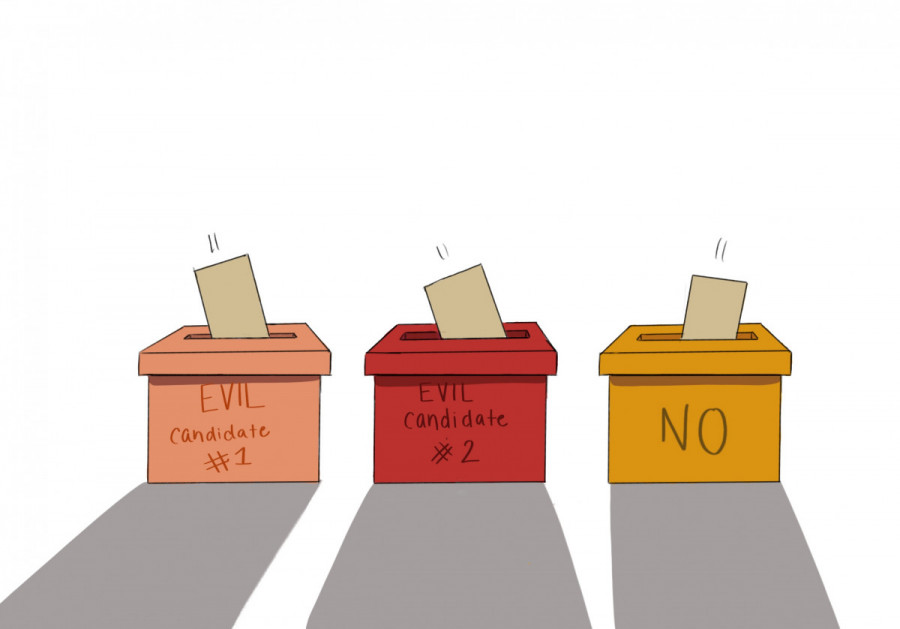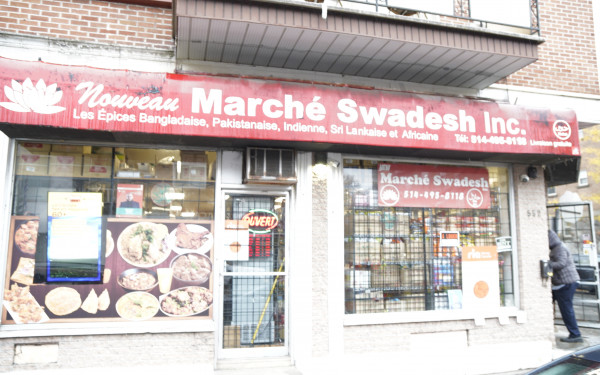Voting is vital
Participating in democracy empowers people to influence decisions and initiate change
In a time when political polarization seems to embody every election cycle, it’s easy to feel discouraged when your values don’t align with any candidates.
The division of entire populations into opposing political parties fosters a dysfunctional sense of unity among people with similar views, and increases the difficulty of addressing nation-wide concerns. Political polarization threatens the foundations of democracy by undermining the public’s faith in the electoral system and the independence of the justice system, fuelling the intense divide among citizens.
While political divisions can be seen all over the world, the polarization among U.S. citizens is particularly interesting; it has been ingrained in social and political life for generations, dating back to the 1960s. According to Thomas Carothers and Andrew O’Donohue, most other cases of political polarization are comparatively more recent in origin. America’s polarization has deep social and systemic roots that often result in abuse of executive authority and the view that political leaders only represent their supporters, rather than their country at large.
The support of third parties in America has increased in recent years with the growing dissatisfaction toward Democratic and Republican policies. As elections have historically been a tight race between two main parties, it is sometimes believed that a vote for a third party is wasteful; but as political divisions continue to intensify and shape social spheres, third parties remain important to research and consider.
When election season arrives, many find themselves wondering how, or if, they should vote. From limited options to frustrating debates, elections often feel like a matter of choosing the least harmful option. For some, this is enough to rule out voting altogether. Despite such circumstances, voting remains a vital civil duty that carries weight beyond personal satisfaction.
Election results affect every part of your life; and when critical issues are at play, the stakes are too high to sit on the sidelines.
When you vote, you are asserting your right to be heard. It is an act that allows you to participate in the democratic process that shapes your community and your future. The reality is, no candidate or party will ever align perfectly with everyone’s values. By casting your vote, you can influence what direction to move in, whether you agree with all policies or not.
Those who opt not to vote often argue that voting for the lesser of two evils is still a vote for evil. Choosing to refrain from voting leaves the decision to everyone else. Someone will be elected regardless of whether or not you vote, so why give up your chance to influence the outcome?
Major political parties can at times be out of touch with the average person. In an interview for NPR News, investigative reporter Eric Lipton talks about how politicians often cater to corporate interests due to the significant influence corporate funds and lobbying have on major political parties. This leaves voters to choose between candidates they don’t genuinely support, and candidates who don’t genuinely support them. As seen in recent elections, some might feel compelled to vote strategically to obstruct extreme candidates from taking office, and others choose to abstain from voting to avoid supporting someone whose values don’t align with their own. A vote for the lesser of two evils is not ideal, but it’s the reality we live in; and in order to initiate change, we must make our voices heard however we can.
At every election cycle, whether national or local, it’s important to consider its long-term impacts. Even if the candidate you chose loses, your vote continues to shape the policies that affect everything from your tax rates to your civil liberties.
Not voting doesn’t send a message; it inadvertently supports the status quo and benefits those in power. Choosing not to vote can reinforce the existing political power and reduce pressure to reform. Without anyone to challenge them, policies that maintain the existing state of affairs will persist unequivocally. By casting your ballot—whether strategically or reluctantly—you can ensure that the outcomes reflect a broader range of perspectives.
A Global News article by Jill Lawless explores democracy across the globe, with over 50 countries holding national elections in 2024. The outcome of each election poses significant implications for human rights, international relations, economies and more. Lawless explains that in certain countries, voting is neither free nor fair, with manipulation and misinformation at the forefront.
We often disregard the freedom to vote and the ability to engage in political activism. Participating in the democratic process is a privilege that is not afforded to many people.
No politician will ever perfectly match your values, but nonetheless, voting remains an essential tool for shaping the future and preserving the core principles of democracy.
Your vote is your choice—and your choice matters.







_600_375_90_s_c1.JPG)